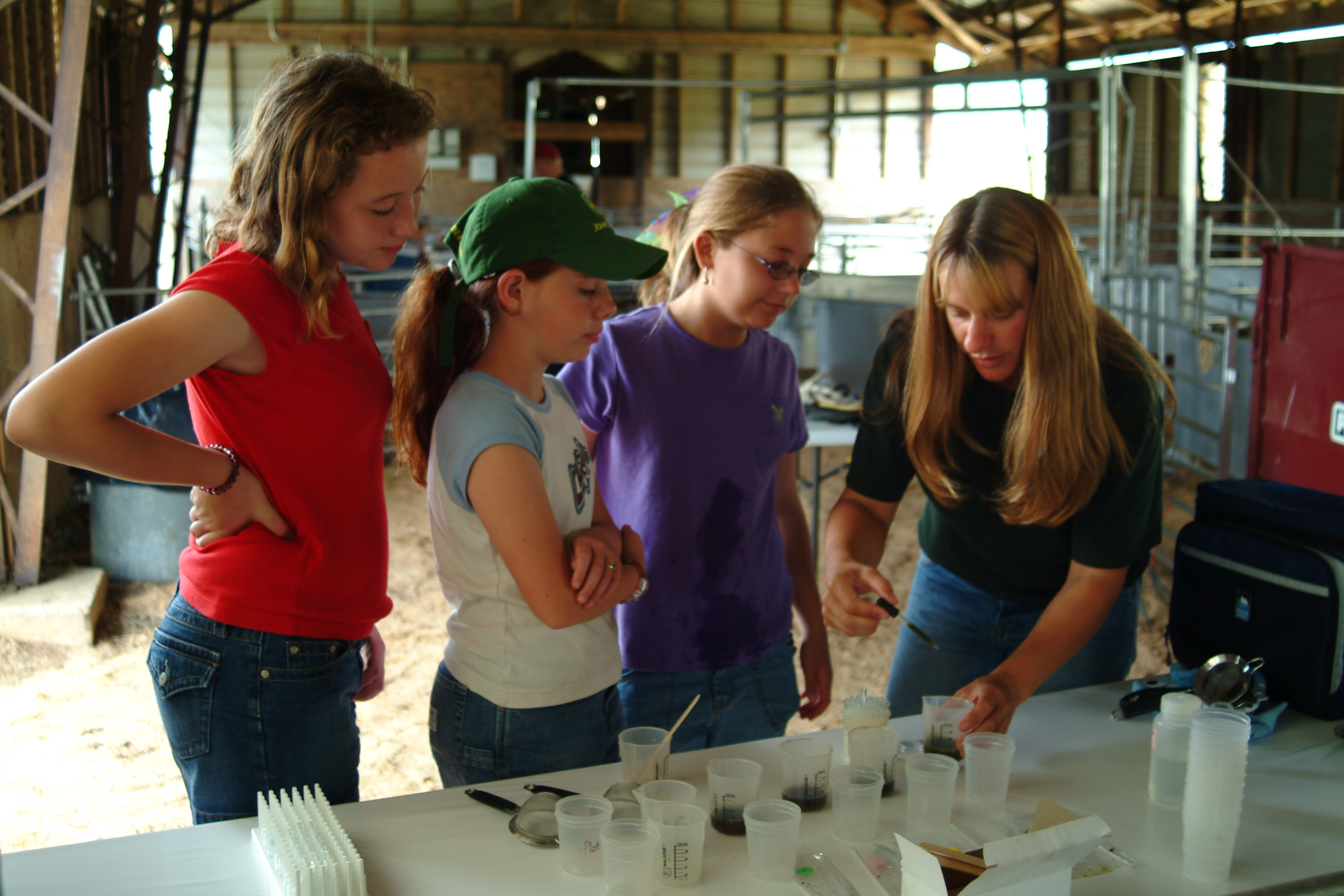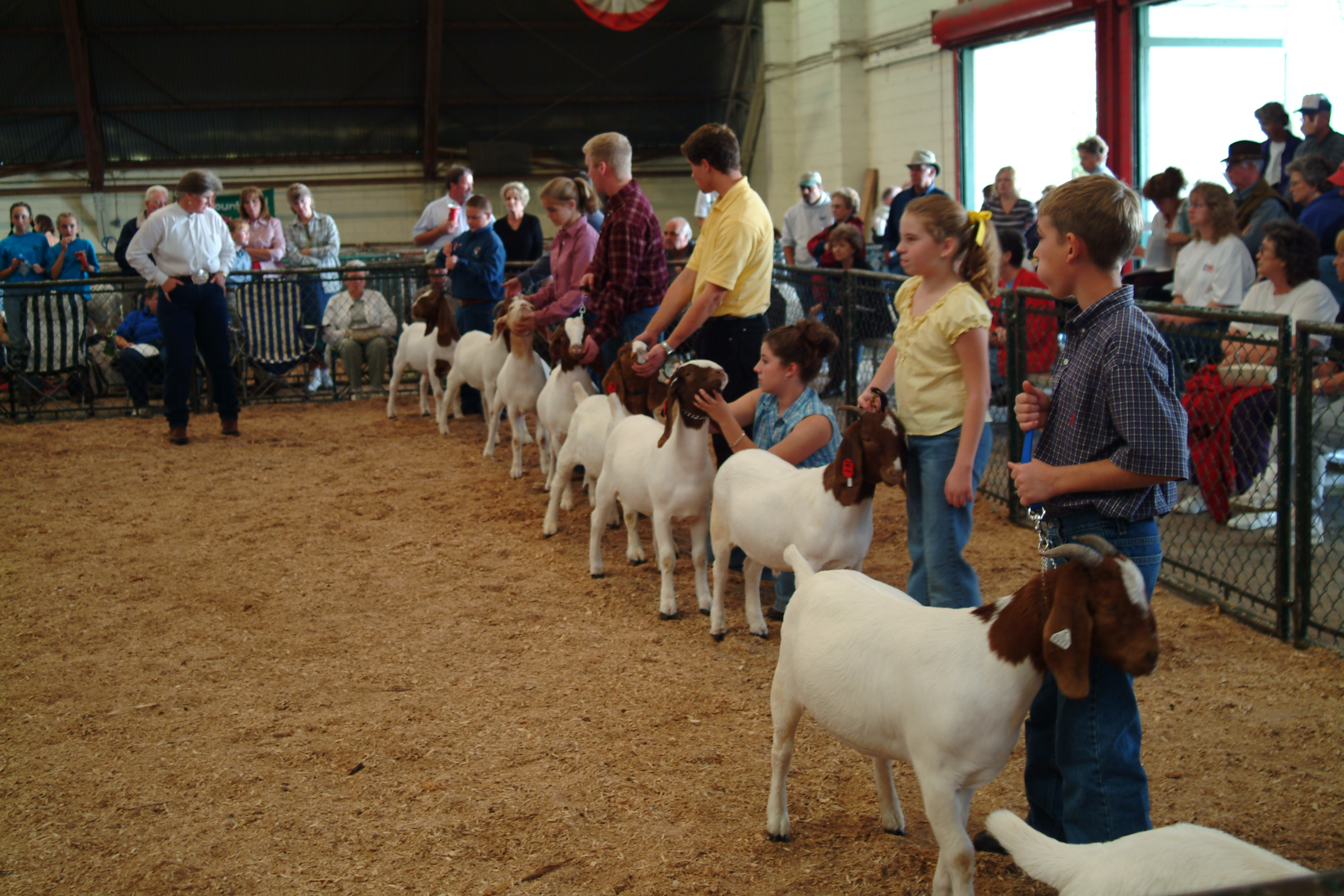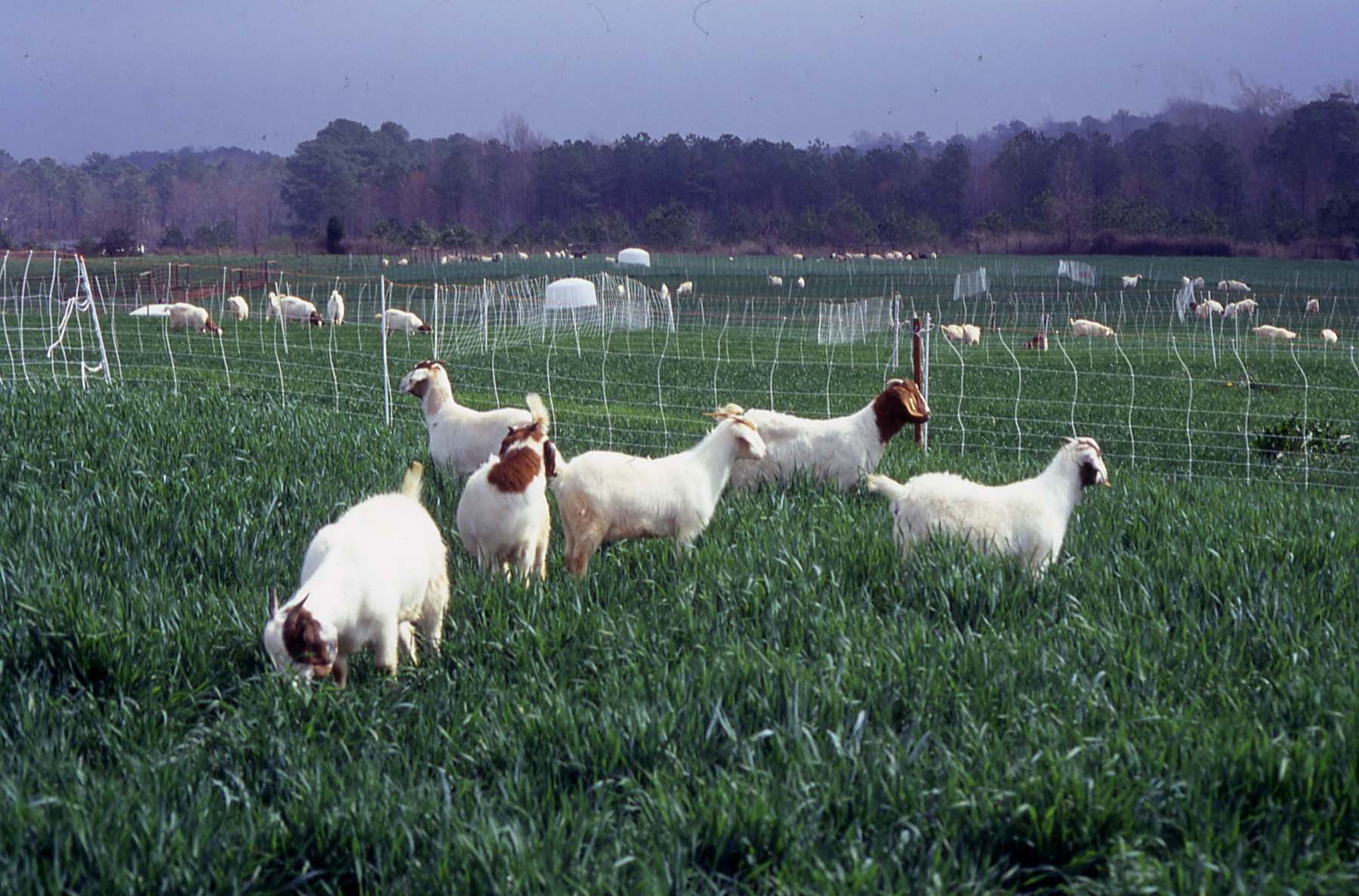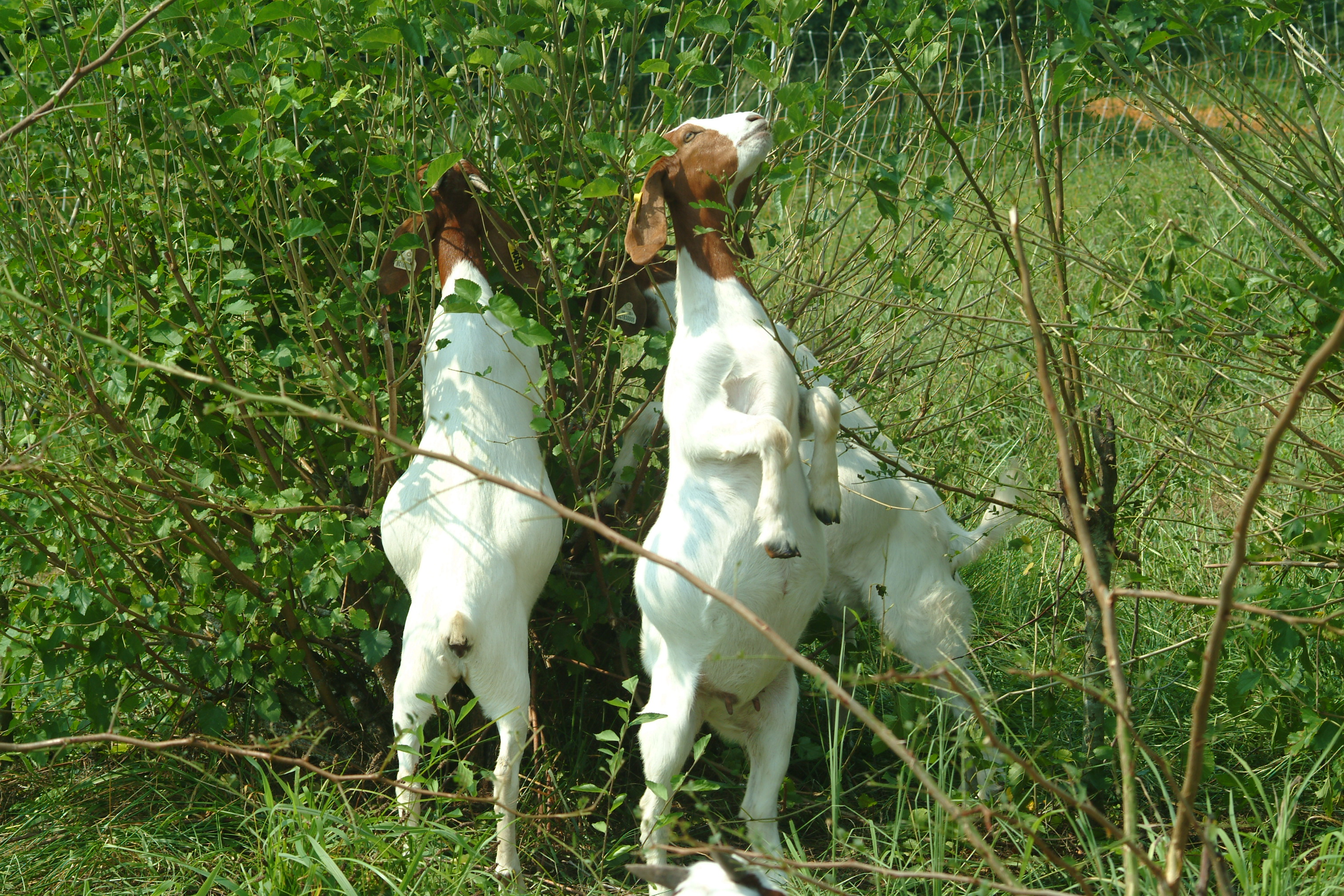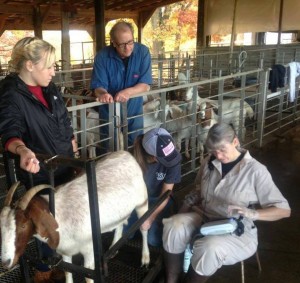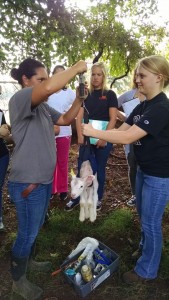About Meat Goats
go.ncsu.edu/readext?210647
en Español / em Português
El inglés es el idioma de control de esta página. En la medida en que haya algún conflicto entre la traducción al inglés y la traducción, el inglés prevalece.
Al hacer clic en el enlace de traducción se activa un servicio de traducción gratuito para convertir la página al español. Al igual que con cualquier traducción por Internet, la conversión no es sensible al contexto y puede que no traduzca el texto en su significado original. NC State Extension no garantiza la exactitud del texto traducido. Por favor, tenga en cuenta que algunas aplicaciones y/o servicios pueden no funcionar como se espera cuando se traducen.
Português
Inglês é o idioma de controle desta página. Na medida que haja algum conflito entre o texto original em Inglês e a tradução, o Inglês prevalece.
Ao clicar no link de tradução, um serviço gratuito de tradução será ativado para converter a página para o Português. Como em qualquer tradução pela internet, a conversão não é sensivel ao contexto e pode não ocorrer a tradução para o significado orginal. O serviço de Extensão da Carolina do Norte (NC State Extension) não garante a exatidão do texto traduzido. Por favor, observe que algumas funções ou serviços podem não funcionar como esperado após a tradução.
English
English is the controlling language of this page. To the extent there is any conflict between the English text and the translation, English controls.
Clicking on the translation link activates a free translation service to convert the page to Spanish. As with any Internet translation, the conversion is not context-sensitive and may not translate the text to its original meaning. NC State Extension does not guarantee the accuracy of the translated text. Please note that some applications and/or services may not function as expected when translated.
Collapse ▲The Meat Goat Information Portal was developed to bring together all the resources pertaining to production, management and marketing of meat goats. On this site, extension agents and producers can find extension and research-based information specific to North Carolina meat goat production.
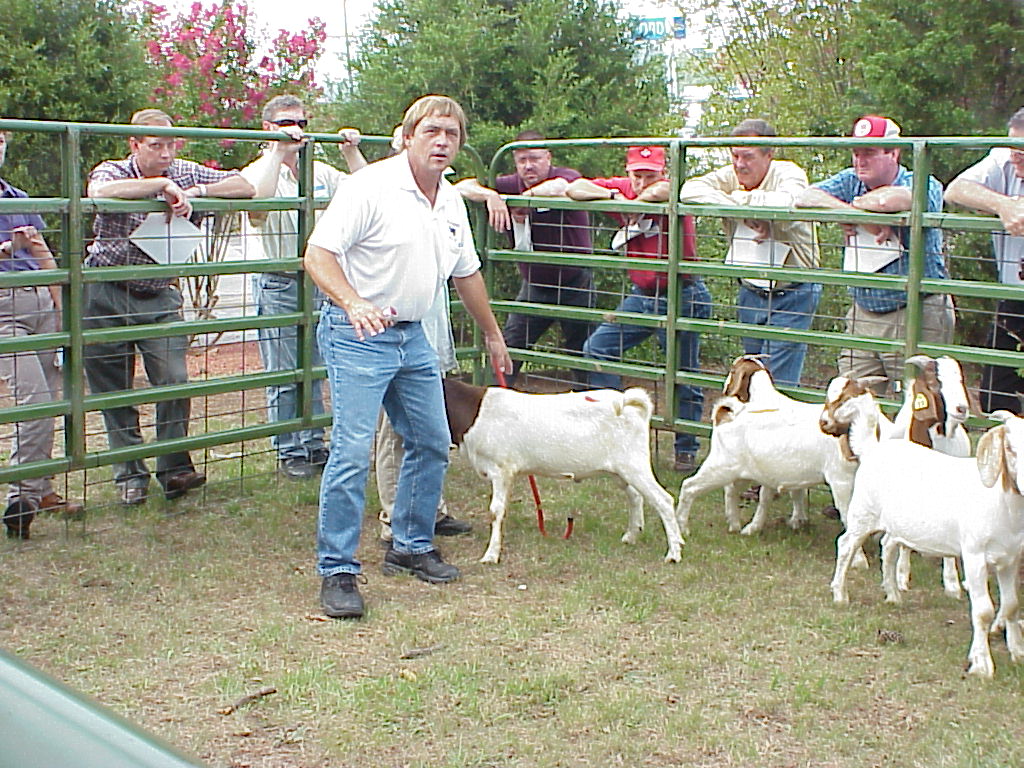 Interest in meat goat production in North Carolina has increased steadily during the past 18 years because of the demand for goat meat by ethnic groups who prefer goat meat in their diet. USDA statistics indicate that 43,188 million pounds of goat meat were imported in the USA in 2014, for a total value of $94.7 million. It was estimated by the 2012 Census of Agriculture that the NC meat goat breeding stock inventory totals 54,698 animals for a total of 3,659 farms, or an average of 15 goats per farm. The above breeding stock inventory represents a capital of over $12 million. Recently, goat prices have increased at local livestock auctions and can range from $1.50 to 3.00/lb live weight.
Interest in meat goat production in North Carolina has increased steadily during the past 18 years because of the demand for goat meat by ethnic groups who prefer goat meat in their diet. USDA statistics indicate that 43,188 million pounds of goat meat were imported in the USA in 2014, for a total value of $94.7 million. It was estimated by the 2012 Census of Agriculture that the NC meat goat breeding stock inventory totals 54,698 animals for a total of 3,659 farms, or an average of 15 goats per farm. The above breeding stock inventory represents a capital of over $12 million. Recently, goat prices have increased at local livestock auctions and can range from $1.50 to 3.00/lb live weight.
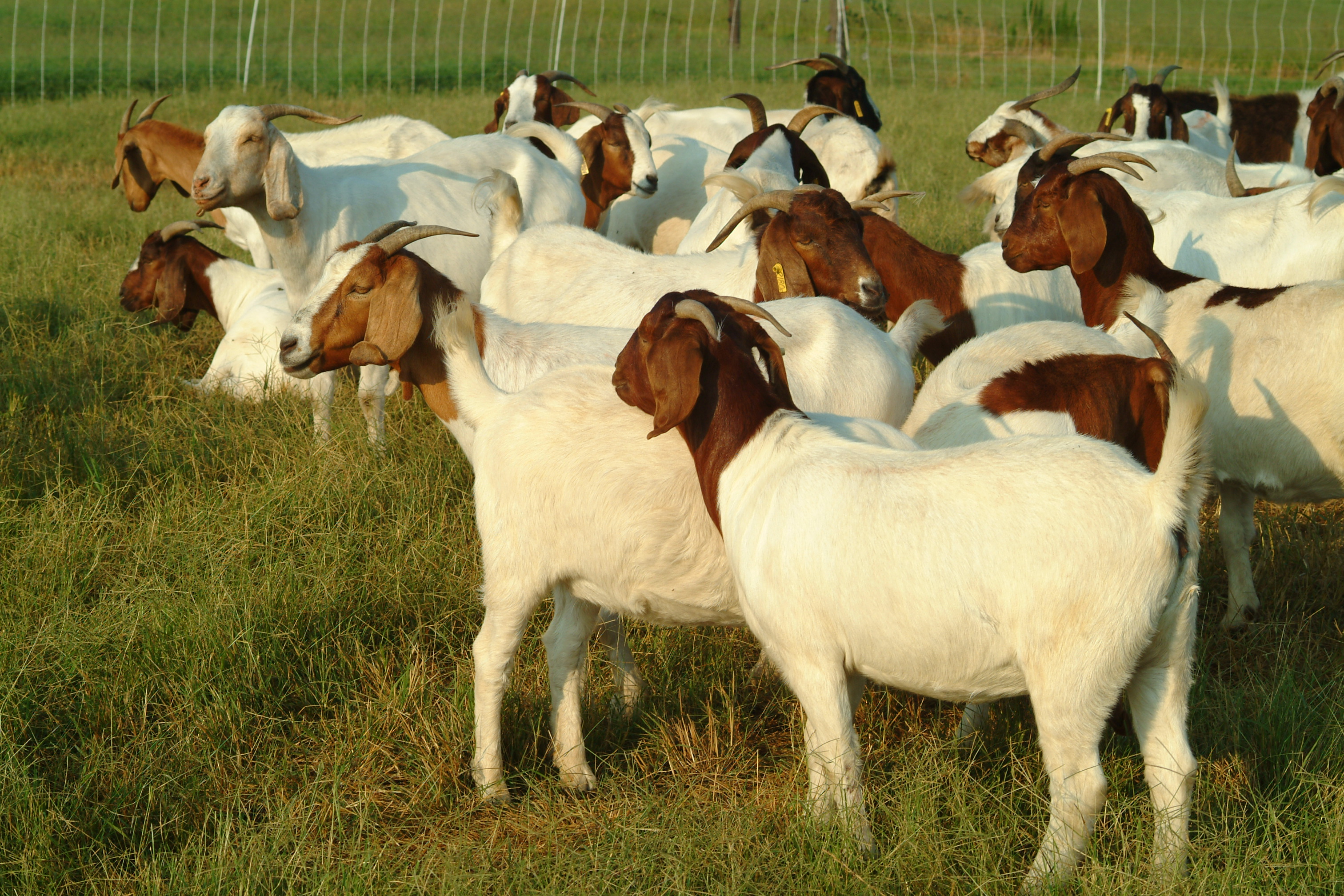
The South African Boer goat has provided great incentive to the development of the NC meat goat industry. Recently, the Kiko breed originally from New Zealand has become popular due to its perceived health hardiness. The Boer Goat Association of NC strives to educate goat enthusiasts and enhance the breeding and marketing of the Boer breed.
There are very successful meat goat shows at the Mountain and North Carolina State Fairs. There is also a monthly graded goat sale in Monroe, which supplements weekly auction market sales in Smithfield, Siler City and Canton. During the last 4 years, an average of 4,684 youth were enrolled in the 4-H meat goat project statewide.
